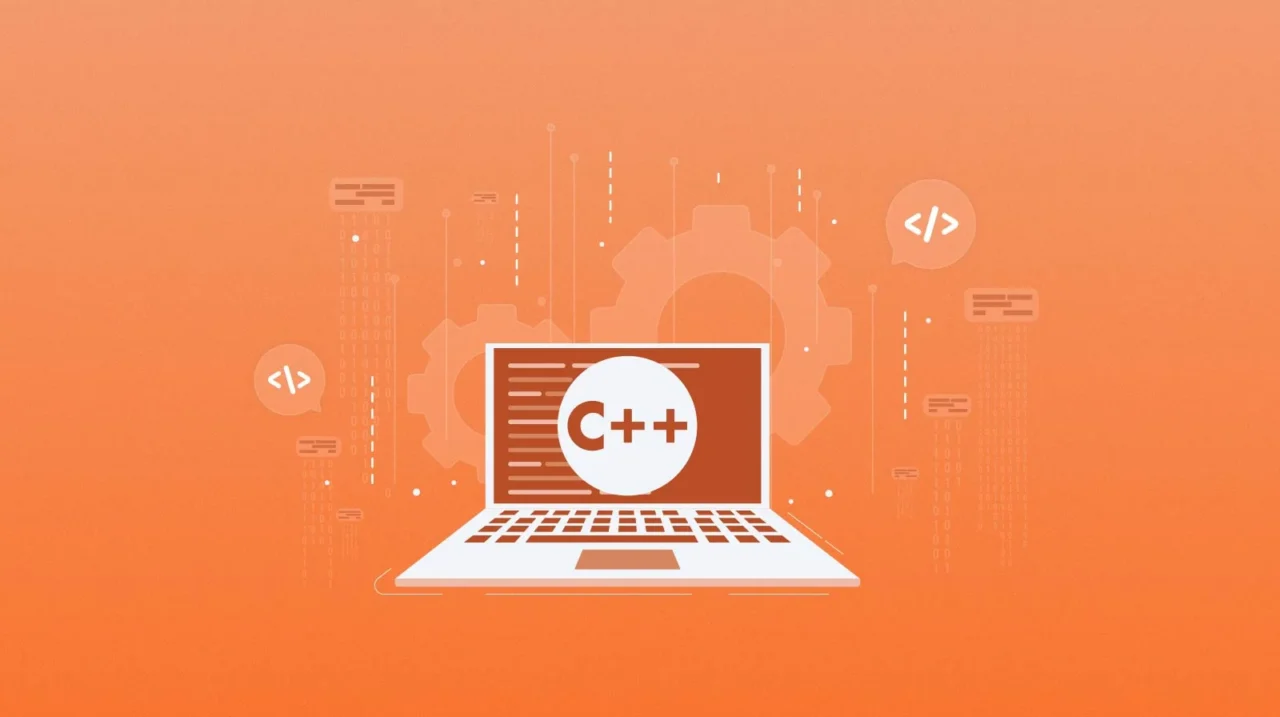Most Common C++ Interview Questions & Answers [UPDATED 2025] – Ultimate Guide for Technical Interviews


Practice unlimited C++ interviews for free on Huru.ai and get instant, actionable AI feedback. Start your journey to your dream tech job today!
Why C++ Interviews Remain a Crucial Career Step in 2025
C++ continues to power some of the world’s most demanding software—think high-frequency trading systems, game engines, embedded devices, and cloud infrastructure. In 2025, hiring managers are seeking not only mastery of foundational topics but also fluency with modern C++ standards (C++17/20/23), toolchains, and real-world problem-solving.
Preparation is your edge. Whether you’re a new grad or a seasoned dev, this updated guide covers the latest C++ interview questions, coding challenges, and technical scenarios—with actionable tips and real answers from industry experts.
C++ Interview Essentials: Categories & What to Expect
C++ interviews in 2025 go far beyond basic syntax. Here’s how most technical rounds are structured, and key topics you must master:
| Category | Sample Topics |
|---|---|
| Basics & Syntax | C vs. C++, data types, operators, flow control, comments, scope |
| OOP Concepts | Classes, objects, inheritance, polymorphism, encapsulation, constructors/destructors |
| Memory Management | Pointers, references, smart pointers, memory leaks, deep vs shallow copy, RAII |
| Exception Handling | try/catch blocks, custom exceptions, noexcept |
| Templates & STL | Class/function templates, STL containers, iterators, algorithms |
| Advanced Features | Move semantics, lambda expressions, concurrency, design patterns |
| Modern C++ | C++11/14/17/20/23 features: auto, constexpr, modules, coroutines |
| Debugging & Performance | Profiling, optimizing code, undefined behavior, concurrency bugs |
- Pro Tip: Many interviews combine algorithmic problems (using STL) with real-world debugging or code review scenarios.
- Always ask for clarification and discuss trade-offs during your answer! 🧠

Most Common C++ Interview Questions (2025 Edition) – With Answers
Let’s break down the most-asked C++ interview questions you’ll encounter this year. Each answer is concise, up-to-date, and proven to impress hiring managers:
1. What are the main differences between C and C++?
C is a procedural language. C++ supports both procedural and object-oriented programming, offering features like classes, objects, inheritance, and polymorphism.
2. Explain the concept of inheritance and polymorphism in C++.
Inheritance allows one class to acquire the properties and behaviors of another. Polymorphism lets you use a single interface to represent different underlying forms (function overriding, virtual functions).
3. What are smart pointers? Name types available in C++11/14/17/20.
Smart pointers automate dynamic memory management and help prevent leaks. Types: unique_ptr, shared_ptr, weak_ptr (from C++11 onwards).
4. What is the difference between deep copy and shallow copy?
A shallow copy copies only object references, while a deep copy duplicates the actual objects in memory—essential to avoid shared-state bugs with pointers.
5. Explain the usage of STL containers and algorithms. Why are they important?
STL provides reusable classes (like vector, map, set) and algorithms (like sort(), find()) that boost productivity and safety. They’re optimized and widely tested—use them over custom code when possible.
6. What’s new in C++20 and C++23?
Modern features like ranges, coroutines, modules, concepts, and improved lambdas. Interviewers expect you to know and use these for writing safer, cleaner, and more scalable code!
7. How do you detect and fix memory leaks in C++?
Use tools like Valgrind, ASan (Address Sanitizer), or built-in smart pointers. Always pair new with delete, and prefer RAII and STL containers for safe memory handling.
8. What is RAII?
Resource Acquisition Is Initialization ensures resources (memory, files, locks) are released when objects go out of scope. Prefer using RAII-enabled classes to avoid leaks and exceptions.
9. Explain the diamond problem and how C++ resolves it.
The diamond problem arises from multiple inheritance. C++ resolves this using virtual inheritance to ensure only one copy of the base class is shared across derived classes.
10. What is the difference between class and struct in C++?
In C++, struct members are public by default, while class members are private. Both can have methods, constructors, and inherit from other classes.
💡 Key Takeaway
Demonstrate your expertise in both classic C++ fundamentals and modern features. Interviewers want more than rote memorization—they want adaptive, collaborative coders who understand the “why” behind the code!
Top C++ Coding Exercises and Problem-Solving Tasks
- Implement a custom copy constructor and assignment operator for a class handling dynamic memory.
- Write a thread-safe singleton using C++11
std::mutexandstd::unique_ptr. - Optimize a function for cache locality and move semantics (showing before/after code).
- Use STL containers to solve a real-world task (e.g., log parsing, histogram computation).
- Debug/fix a memory leak in sample code (with and without smart pointers).
- Solve a classic algorithm (e.g., two-sum, binary search) using idiomatic C++.
For hands-on prep, try the Huru.ai AI-powered interview simulator for unlimited practice and instant feedback.
💡 Key Takeaway
Be ready to write code on a whiteboard or online editor. Interviewers often test not just correctness, but code style, edge-case handling, and how you communicate your rationale.
Real-World C++ Interview Scenarios & Behavioral Questions
- Describe how you optimized a slow C++ program in production. What steps did you take and what tools did you use?
Tip: Mention profilers (Valgrind, gprof), refactoring, and leveraging STL or move semantics. - How would you design a modular C++ library for team use?
Discuss separate compilation, header/source separation, and dynamic linking. - Explain your workflow for debugging a concurrency bug.
Tools: thread sanitizers, logs, breakpoints. Approach: isolate race, reproduce, fix, and test. - How do you stay up to date with C++ standards and ecosystem changes?
Mention ISO standards, CppCon, cppreference.com, and open-source contributions. - How do you ensure code is secure and avoids undefined behavior?
Talk about static analysis, code reviews, and defensive programming patterns.
These questions test not only your knowledge but your professionalism, teamwork, and continuous learning mindset—qualities top employers seek in 2025 and beyond! 🚀
💡 Key Takeaway
Showcase your problem-solving process and collaboration skills as much as technical answers. Employers want team players who write robust, maintainable C++ code.
2025 C++ Hiring Trends & New Interview Focus Areas
- Modern C++ Mastery: Employers expect comfort with C++17/20/23 features like modules, coroutines, and concepts.
- DevOps & Tooling: Knowledge of static analyzers, CI/CD, and modern build systems (CMake, Bazel) is increasingly valued.
- Cloud & HPC: Experience with multithreading, distributed systems, and cloud-native C++ is a huge plus.
- Code Review Culture: Familiarity with collaborative workflows, code reviews, and pair programming is sought after.
- Security & Reliability: Secure coding practices, avoiding UB, and mitigating vulnerabilities are core interview themes.
For a deep dive into technical rounds, see our guide: Software Engineer Interview Questions Nail The Technical Coding Round.
C++ Interview Prep Tips from Hiring Managers
- Clarify all requirements before you start coding—don’t be afraid to ask questions.
- Explain your thought process out loud. Employers prize clear communicators.
- Use idiomatic, modern C++—show off knowledge of up-to-date features.
- Test your code for edge cases and exception safety.
- Stay calm, organized, and demonstrate problem-solving agility.
- Practice with Huru’s AI-powered mock interviews to simulate the real thing and get immediate improvement feedback.
Watch: C++ Interview Questions & Answers Explained (2025 Video Guide)
💡 Key Takeaway
Don’t just memorize answers—practice speaking and coding out loud. Use Huru.ai for unlimited mock interviews, instant feedback, and the best preparation for 2025 tech roles!
Additional Resources & Where to Practice
- Huru.ai – Free unlimited AI-driven interview practice for C++ and more
- GeeksforGeeks: C++ Interview Questions
- Codefinity: Top 50+ C++ Interview Q&A
- Spark Hire Interview Questions Answers
- Technical Program Manager Interview Questions Lead With Confidence
- Frontend Developer Interview Questions Polish Your Portfolio And Answers
- Microservices Interview Questions And Answers
💡 Final Thought
You’ve got this! With strategic practice and a clear grasp of modern C++, you’ll stand out in 2025 tech interviews. Ready to crush your next round? Start practicing now with Huru.ai!


 Jun 16,2022
Jun 16,2022  By Elias Oconnor
By Elias Oconnor